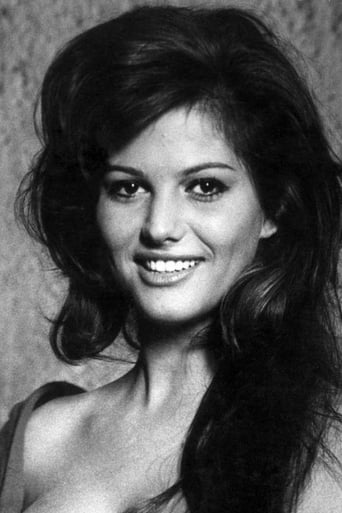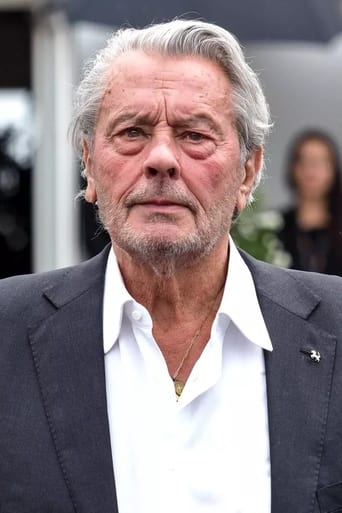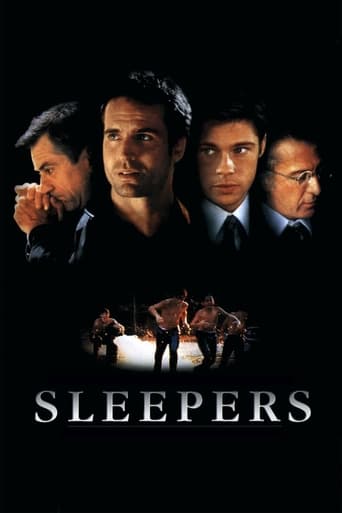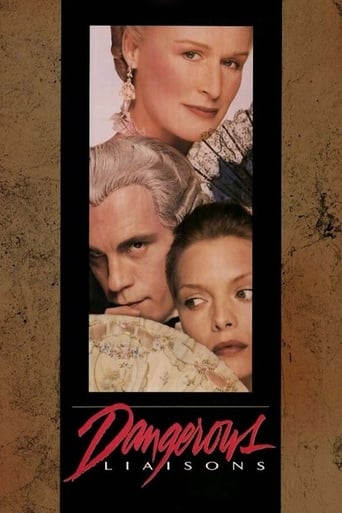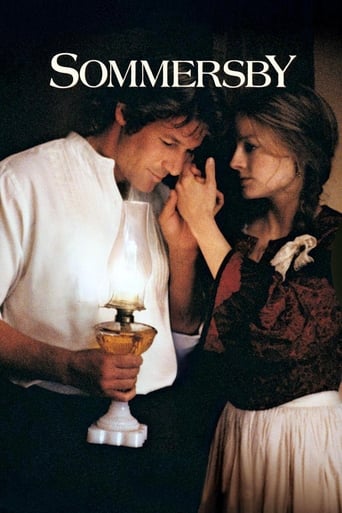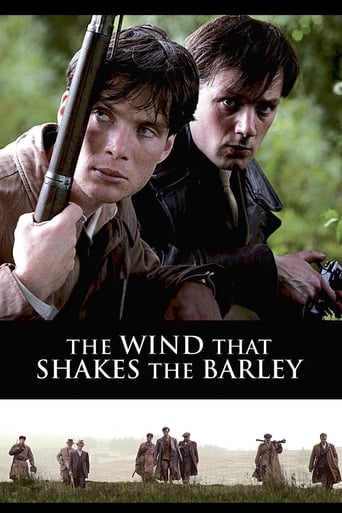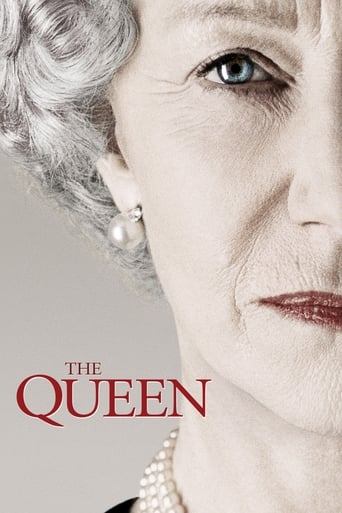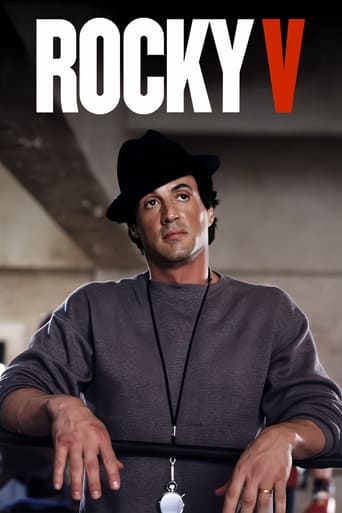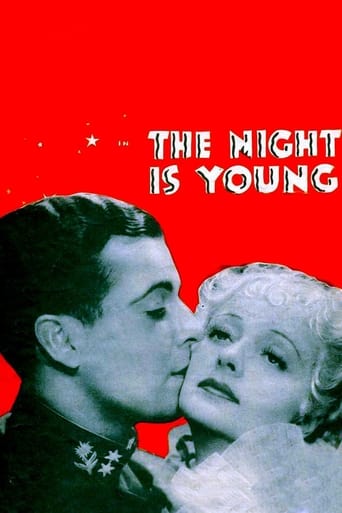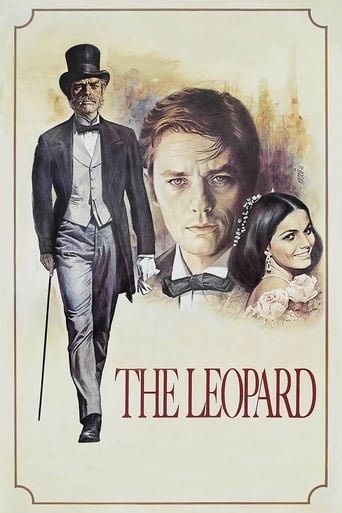
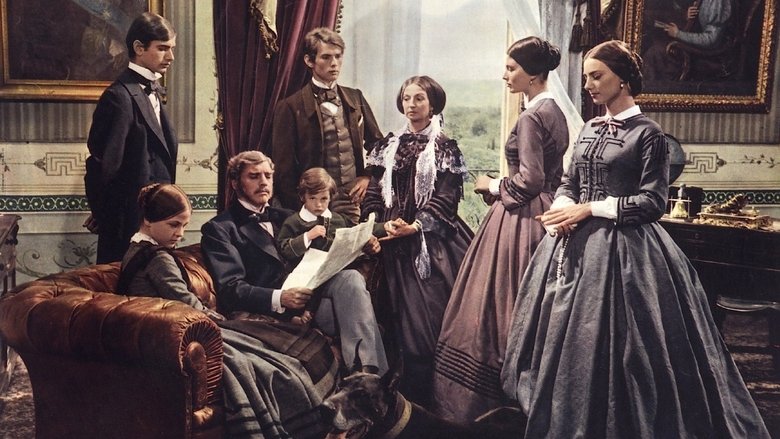
The Leopard (2004)
As Garibaldi's troops begin the unification of Italy in the 1860s, an aristocratic Sicilian family grudgingly adapts to the sweeping social changes undermining their way of life. Proud but pragmatic Prince Don Fabrizio Salina allows his war hero nephew, Tancredi, to marry Angelica, the beautiful daughter of gauche, bourgeois Don Calogero, in order to maintain the family's accustomed level of comfort and political clout.
Watch Trailer
Cast


Similar titles
Reviews
"The Leopard", Golden Palm winner of 1963, might have the prestigious look and feel of a big-budget historical drama, confidently directed by veteran Luchino Visconti and sublimated by the melodies of Nino Rota... and yes, to some degree, it can be regarded as an Italian equivalent to "Gone With the Wind". But it's within the resignation not the determination of its main character that we find the soul of the film. Indeed, for a story supposed to be about historical upheavals and political turmoil, "The Leopard" is remarkably static and stoic. This owes a lot to the performance of Burt Lancaster as Don Fabrizio Corbera, Prince of Salina, he carries both the codified solemn authority of a man of his rank and the poignant vulnerability of a man at the nadir of his splendor, belonging to a chapter of Italy's history whose pages are soon to be turned. We're in 1860 when Garibaldi's troops are dethroning the then-ruling Bourbons in Sicily. Salina might be a leopard but an endangered species in that particular context. Yet "The Leopard" isn't much a character study, the film is adapted from Giuseppe Tomasi di Lampedusa's novel of the same name, centering on the decay of the old aristocratic system. And without reading the book, I guess it carries the same resonance in Italy as Margaret Mitchell's "Gone With the Wind". I suspect the book starts with magnificent descriptions of all the lavish vegetation that graces the landscape, the natural sprays that float over the warm sky of Sicily, among them the breeze of modernity coming from the continent. And I suspect the film while not absolutely flawless does justice to the novel. Yet what a bizarrely quiet journey, we're getting prepared to a downfall... that never occurs. The film is very much about the way Sicily was under the noble rulers before the Unification of Italy under the King but isn't much interested in the future. But it's easy to miss that we're witnessing one of the first glimpses of the Island's unique beauty before "The Godfather" would give the most vibrant homage. History and locations are constant markers of the film but trust our knowledge a little too much. "The Leopard" might be too difficult for most viewers and maybe a little introduction about the context wouldn't have hurt the film or at least, a few geographical notes. And despite some very well-choreographed battle scenes, war always seems distant, as contemplated from the passive perspective of the Salinas who just idly move from one palace to another, the heirs enjoying the bucolic lifestyle while the patriarch can exchange a few quips with his priest (Mario Girotti) and a few heated political gossips with his hunting companion (Serge Reggiani). The dialogues go from minimalist to passionate, superficial to subtle, but to those who don't pay much attention to politics, the highlight of these conversations is in the body language, the way they indirectly establish that the Prince still inspires respect and a servile attitude (sometimes the corniest) proving that nothing had changed as far as he's concenred. The best thing about Lancaster is that he plays a man talking about losing his power while always being powerful. So what we have is a film that works in two paces, it is history in motion and a cross-country travel yet strangely motionless, it's as puzzling and beautiful as one of these mechanically arranged ballroom waltzes. The Prince is one of these paradoxes the silver screen is enamored with, in one of his best scenes, he's asked by the priest to confess his sins but there are limits the Prince can't tolerate, like searing seven children from a woman without ever seeing her navel. The Prince is a man of life, love and passion and the fading of his aura just coincided with the Italy he knew, but having to endure his petite Devout catholic nagging and whining wife is one blow to his manhood he can't have. But the story would have been quite austere if it wasn't for the additions of two more high-spirted characters: Tancredi, played by the distractingly handsome Alain Delon and Anjelica, the daughter of an opportunistic mayor, played by the exquisite Claudia Cardinale. Tancredi is an ambitious go-getter who fights for either army depending on his interest but with such charisma it reveals the level of ambition so severely lacking in the Prince's progeny. The parallel between the two men isn't just highlighted by their relationship but the way they instantly feel the same lust toward the same woman... a gilded cage is something "The Leopard" can consent to... but losing his paws? Luchino Visconti was a descendant of this Sicilian nobility yet refused to play the titular part although everyone acknowledged his regal persona. Burt Lancaster was picked so the film could get the necessary banking from Hollywood and I thought he gave a presence to the film, he's charming, charismatic and can turn from intimidating to friendly in one simple grin, he's accessible like an old friend but sacred like an old relic we venerate out of habit. But he's also a pragmatic man who understands that all the prestige of the world can't do without money and even marriage can turn into financial bargain, the end justifying the means. Aren't we after all in the country that gave Machiavelli? All these torments pinnacle in the iconic ballroom sequence, which is as long as the wedding opening in "The Godfather" and culminates with the same inter-generational dance, but what a moment! By having a final waltz with the beautiful Anjelica, we see a rebirth for the Prince, a rejuvenating shoot before finally surrendering to the march of time, more ruthless and permanent than any conquest or invasion... but still using a party as an opportunity to tie bonds and take decisions (like "The Godfather") not much have changed for Sicilian traditions... and if it's any consolation, the Leopard was right!
No doubt about it, The Leopard with its DeMille like opulence is a thing of sheer beauty. As subject matter for an American audience I think that unless one has a knowledge of Italian history this film might just be a bit arcane for an American audience.Burt Lancaster who was hired for American and worldwide box office clout is the lead here. He plays the head of an honored noble house in Sicily which is seeing the end of power with the end of the Kingdom of the two Sicilies which is roughly the island of Sicily with the lower half of the Italian peninsula up to around Naples. Giuseppe Garibaldi is leading a revolt against the ruling Bourbon house there. Lancaster's nephew Alain Delon has joined with Garibaldi's army purely for reasons of self preservation for himself and the family. Delon is quite the opportunist. As for Lancaster he looks over the ruins of the society he was a leader in with a dour pessimism just like Ashley Wilkes at the end of the Civil War. In fact The Leopard bears more than a passing resemblance to Gone With The Wind. For one thing it was the epic novel only published work of two authors talking about long gone societies which they were told tales about as kids.Things take a conservative twist in Italy. The House Of Savoy which ruled the island of Sardinia and Piedmont area of Northern Italy kept itself in business and now was uniting Italy under a constitutional monarchy. One of the locals who's amassed a fortune Paolo Stoppa is in tight with these folks. Alain Delon is courting Stoppa's daughter Claudia Cardinale. A marriage between the two houses will insure financial security for Lancaster and relations and Stoppa gets the prestige of an old and honored name. Lancaster isn't crazy about Delon marrying beneath him, but he sure likes what he sees in Cardinale.I saw an abbreviated version of The Leopard with battle footage and the some of the climactic ballroom scene cut out. Lucchino Visconti certainly had the skill to bring off a portrayal of Italy's past. His characters are interesting and certainly Burt Lancaster is most impressive as a man some 300 years behind the time and he knows it. Lancaster has some sad predictions for Italy's future and again a knowledge of how Fascism came to Italy is helpful.The Leopard is an impressive film, but arcane for American audiences.
In 1860 Garibaldi and his volunteers conquered Sicily, defeating the Bourbons and setting the stage for Italian unification. In The Leopard, Visconti's adaptation of a great Italian novel, a noble Sicilian family, led by pater familias Don Fabrizio Salina (Burt Lancaster), faces this crucial event and its aftermath.The film is impeccable, gorgeously shot with a great eye for colors, lighting and composition, luscious costumes and set design, a marvellous soundtrack by Nino Rota.In one of the great examples of serendipitous casting in cinema history, Burt Lancaster was imposed upon Visconti by the production, much to the director's distrust: it turned out to be the best performance of Lancaster's career, as he perfectly embodied proud, educated, fiery, sensual Prince Fabrizio. Alain Delon plays his nephew Tancredi, the happy-go-lucky youngster who falls for beautiful social climber Angelica (a young and radiant Claudia Cardinale), daughter of nouveau riche Calogero Sedara (Paolo Stoppa). Every supporting performance is gold, with my favorite probably being Romolo Valli as keen, quietly disapproving priest Padre Pirrone.The Leopard is about the entropic dissolution of life - rituals and divertissements like the famous ballroom scene are the last moments of a dying breed which is either desperately trying to adapt to a new world or tragically oblivious to it. With a sensitivity worthy of Tolstoy, the novel and the movie follow Fabrizio, torn between his intense physicality and a painful understanding of time running out for both himself and his class. The last waltz is for death itself."We were the leopards, the lions, those who take our place will be jackals and sheep, and the whole lot of us - leopards, lions, jackals and sheep - will continue to think ourselves the salt of the earth."10/10
Visconti'mos The Leopard, based on the novel of the same name by Giuseppe Tomasi di Lampedusa is an epic that encapsulates the birth of the modern Italy and the transition from the old world of the privileged but moribund aristocracy controlling small duchies to the new era of the democratic nation-state.Burt Lancaster is surprisingly well-cast as the ageing Sicilian prince who realises his era is drawing to a close whilst Alain Delon, playing Tancredi, represents the ambitious, younger generation, fluid to adapt to a changing situation and seeking glory for their own benefit.The film does not take sides between the aristocrats and the peasants. The aristocratic class is shown to be relatively benign by this period, despite their isolation from reality and lives of privilege. As the priest notes, they are simply different, with different priorities and expectations from the rest of the people. Lancaster's prince is a fascinating mixture of honour, integrity and decadence. Having all that he can want except an exciting wife, he constantly seeks affection from other woman to make up for her dourness and extreme prudishness.Visconti's cinematography is nothing short of breathtaking. Virtually every shot in the film looks as though it could come from an oil painting of the era, so perfect is the framing of the shots and so rich and exquisite is the colour.There is an interesting use of abrupt cuts to the soundtrack during the cuts from scene to scene and this reinforces the abrupt changes happening in Sicilian society.The film's pace is slow and there are times that interest lags but there are enough bursts of humour and drama to sustain one in the end. The flaws and humanity of the people who make up this dying class really do shine through. Ultimately, the film is the character study of someone who recognises the time for change has come yet and finds himself representative of the transitional generation between the two epochs.There is violence in the film and some scenes of warfare however, this reinforces the fact that soldiers are brutal opportunists and that there is no real honour in the military. Indeed, the fact that some of the aristocratic women fall for the delusion that a man in uniform is somehow a good man makes an ironic point about how divorced from the brutal reality they are. Indeed, it is frightening that someone prepared to kill can then rise to a position of power in society, a problem that democracies are still to adequately address to this day.The ball scene at the film's end shows how the classes and generations intermingle in the new life.The dialogue is excellent and seems to translate to English well on the subtitled edition this reviewer watched. Particularly insightful is the soliloquy about Sicily being a stagnating society, that only if people escape whilst young can they be revitalised and shaken out of their apathy. As someone who left another island (Tasmania) in a similar state of apathy (albeit with a much younger society and culture than Sicily), this reviewer can relate to the need to escape and revitalise if one is to have a future.The Prince, though, recognising his age, refuses to escape. He is not world-weary though, just resigned to accept his generation will fall, yet still intent on clinging to the old values of honour and integrity.Ultimately, this is a lavish spectacle on a large enough scale to encompass the saga of the birth of a new nation out of a myriad of ancient and tired kingdoms. It is also a character study of a person who fits into neither world and feels it more honourable to stand aside for the young generation to take charge. It also shows that values do not always change for the better and that something of value, however small, may have been lost when the brutal and ruthlessly ambitious younger generation took power.With some of the best cinematography ever, excellent acting and a truly historical sweep, this is one of the greatest of the studio-bound epics. Of course, like the Prince himself, these films would be a dying breed throughout the 1960s as the new generation of the nouvelle vague movement asserted themselves across Western Europe.



